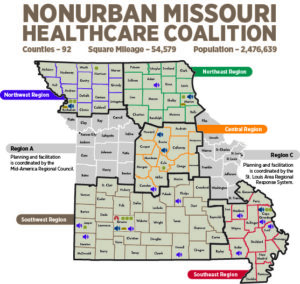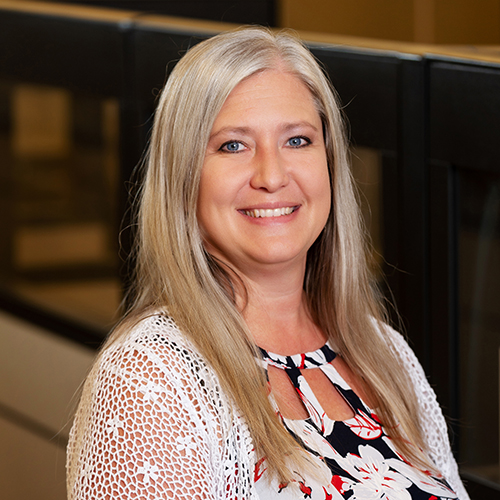In addition to state-level programs/resources described above, Missouri hospitals have secured regional fatality resources to increase hospital surge of decedents.
Currently, the State of Missouri (Department of Health and Senior Services and Department of Public Safety) is collaborating with the Missouri Disaster Response System to develop a statewide mass fatality response system using the federal team as a model. The state is developing agreements with many communities and organizations that currently have equipment and expertise. The new resource will be introduced to communities once the necessary systems are in place.
Locations
- Northwest Region: Mosaic Life Care, St. Joseph
- Northeast Region: Hannibal Regional Healthcare System
- Southwest Region: Mercy Springfield



















